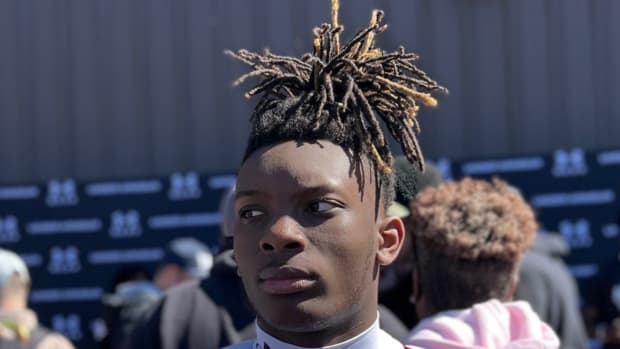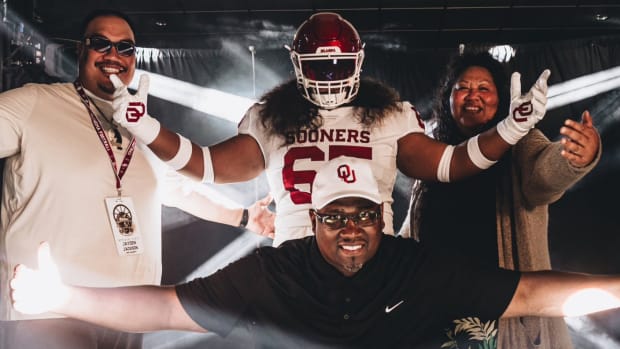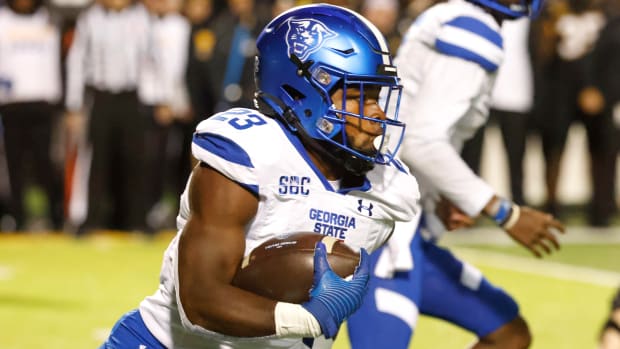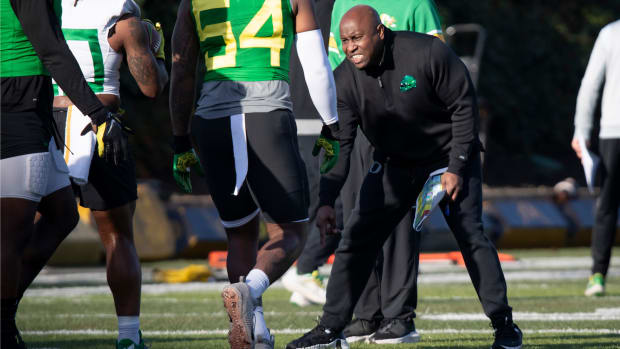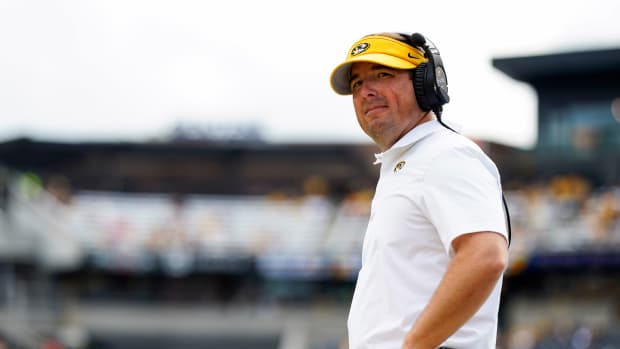What Will Happen If the California 'Fair Pay to Play Act' Gets Signed Into Law?
The State of California is getting closer to adopting the Fair Pay to Play Act, a law that would end NCAA amateurism as we know it. However, as explained below, there are important caveats that muddle the Act’s potential impact.
On Monday, the California State Assembly voted by a decisive 73-0 (with 6 no votes registered) to pass SB 206, another version of which passed the California State Senate in May. The Assembly and Senate will soon attempt to reconcile minor differences between the two versions. Assuming that process moves favorably, Governor Gavin Newsom would have 30 days to sign a final version of the bill. Newsom would likely sign the Act into law.
The Act, which Los Angeles Lakers star LeBron James and other prominent figures have advocated, would not trigger immediate change. It would go into effect on January 1, 2023, which is 40 months from now. It would likely face legal challenges long before 2023 that could render the Act void or delay its implementation. The Act could also be rendered moot by potential NCAA reforms or proposed federal legislation that would, if passed by Congress and signed by the President, occupy the same space.
The Act within the context other NCAA reforms
The Fair Pay to Play Act should not be confused with other efforts to reform college sports. It would not convert college athletes into employees or allow them to unionize. It would not lift the grant-in-aid cap on the value of athletic scholarships or alter how the full cost of attendance is configured. It would not force colleges, conferences or the NCAA to pay college athletes in any new way.
The Act, which is authored by California Senators Nancy Skinner and Steven Bradford, is about empowering college athletes to negotiate their own contracts with third parties over the commercial use of their names, images and likenesses. Think video game publishers. Or apparel companies. Or trading cards. Or autograph shows.
If this idea sounds familiar, it’s because it is. The idea lies at the heart of former UCLA basketball star Ed O’Bannon’s historic case against the NCAA. O’Bannon proved that the NCAA and its member schools had unlawfully conspired with companies, including Electronic Arts (which settled with O’Bannon before a trial), to deny college players the value of their identities. College players appeared in video games that sold for $60 a piece, along with numerous other products that appeal to consumers because of their inclusion of players’ identities. The players had not granted permission, or been paid, for their identities to be used. Meanwhile the NCAA, its member schools and conferences, as well as video game, apparel, broadcasting and other companies, profited considerably.
The Act within the context of “amateurism”
The NCAA has long argued that its system of amateurism, which contains myriad rules to purportedly separate college sports from professional sports, requires that college players can’t monetize their identities.
The vulnerability of this argument is two-fold. First, U.S. law generally prohibits misappropriating someone else’s identity for commercial profit. Second, contemporary college sports mimic professional sports in so many regards—college coaches, in some cases, earn many millions of dollars a year; college stadiums, arenas and athletic facilities use state-of-the art technologies and resemble those used by pro teams; and television and licensing contracts for college games are highly lucrative.
At many “big time” programs, college sports seem amateur for the players, but professional for everyone else.
Even colleges that would support the ability of their athletes to monetize their identities are denied the chance under amateurism rules. If a university president decided to be a maverick and buck NCAA rules, the NCAA would severely punish his or her school. The school would face a range of potential sanctions including fines, loss of scholarships and ineligibility from postseason pay. A school that openly defies the NCAA would eventually be kicked out of the NCAA since it would have abrogated its membership obligations.
The Act compels California colleges to reject NCAA rules
The Act addresses these points by taking the choice away from the school. Under the Act (as currently written), California colleges would be legally forbidden from denying their athletes the chance to hire agents and earn compensation derived from the use of their names, images and likenesses.
In other words, California colleges would face a stark choice: follow California law and break NCAA rules, or break California law and follow NCAA rules. Given that the consequences of breaking the law are far more consequential than breaking a not-for-profit’s membership policies, the school would presumably follow the law.
As a result, college athletes at Stanford, USC, UCLA, Cal and many other schools could not be stopped by athletic department officials from negotiating to be in a college sports video game. Or from being paid to appear at an autograph signing show. Or from appearing in a TV commercial for a local car dealership. This would be true of football and basketball players, as well as for swimmers, volleyball players and other athletes. Men and women’s athletes would both stand to gain.
At least in theory, consumers would also stand to gain. If you enjoyed playing college sports video games back in the 1990s and 2000s, the Act would establish the conditions to bring about those games again. Of course, a video game publisher would prefer to obtain the licenses of college athletes from all 50 states, not just one state. And the publisher might worry that if it negotiated a deal with college athletes without the blessing of the NCAA, that publisher and its associated businesses would then be “blacklisted” by the NCAA for dealings. Still, if California passed this type of law, other states could follow with similar laws, meaning the publisher might eventually obtain access to real players from multiples states.
While the California college athletes would not be able to unionize (only employees can unionize and, as mentioned above, the Act does not alter the athletes’ student relationship with his or her school), they could join a similar entity: a trade association. A trade association can’t collectively bargain with an employer, but it can negotiate licensing contracts with third parties. In other words, the athletes could retain the trade association to negotiate deals.
The Act would face a legal fight
If this all sounds too good to be true, that’s because it is. Law is often messy and that is the case here.
For starters, the NCAA would not sit by idly while California attempts to undo decades of NCAA policy. NCAA president Mark Emmert has already warned that if the Act becomes law, the NCAA would no longer allow California colleges to participate in national championships. Such a restriction would cost those colleges significant revenue. The restriction might also make those schools less attractive to star high school athletes and top college coaches—not to mention make it more difficult for those colleges’ admissions offices to market their athletic program to high school students who want to attend a college with a national sports program and for those colleges’ foundation offices to raise money from alumni whose willingness to donate is influenced by the prominence of their alma mater’s athletic program.
The Act itself is also vulnerable to legal challenge. The NCAA or a California college can plausibly argue that the Act would violate Article, I, Section 8 of the U.S. Constitution. This part of the Constitution refers to the exclusive power of Congress to regulate interstate commerce. Although the scope of interstate commerce has triggered differing opinions over the last 230 years, the contemporary view is that numerous kinds of activities constitute commercial actions. The sale and distribution of pharmaceutical drugs. Phone calls. Health care services. Internet. Banking transactions. Transportation. Broadcasts. Should any of these activities “cross” state lines they would qualify as interstate commerce.
This is where the Act becomes problematical. California colleges play games in other states and travel to those states. They also host games from colleges which travel to California. Broadcasts of those games cross state lines. The same is true of Internet streams. This is just a sample: the list of commercial activities related to NCAA games is long and those activities often extend beyond one state.
The NCAA would argue that the Act unduly interferes with commerce in a way that Congress has not authorized. The NCAA would also contend that unless the Act is stopped by a court, it would force the NCAA to either change its core rules to adhere to the demands of one state or terminate its relationship with California colleges.
There are still other potential legal arguments. California colleges, for instance, could argue that the Act compels them to violate their contractual obligations with the NCAA and Pac-12. The colleges could insist that such an outcome would reflect a violation of the 14th Amendment to the U.S. Constitution and its assurance that the government cannot deny property without due process of law.
The Act could be rendered moot before 2023
The world around the Act could change in meaningful ways long before January 1, 2023 arrives. The NCAA, for instance, could voluntarily modify its rules for amateurism. Big East commissioner Val Ackerman and Ohio State athletic director Gene Smith are currently leading a working group that is considering various recommendations related to the use of college athletes’ names, images and likenesses. It’s possible the working group could recommend that the NCAA adopt a new model. Perhaps, for instance, college athletes could be compensated for the use of their identities but only access that compensation after their collegiate experience ends. Or maybe college athletes could be compensated along the lines of college students who are Olympic athletes—they are able to hold onto stipends and prize money. There are many possibilities.
Meanwhile, the band of lawmakers who seek to confront the NCAA will play on in other states and on Capitol Hill. Congressmen Mark Walker (R-NC) and Cedric Richmond (D-LA) have proposed the Student-Athlete Equity Act. The Act contemplates stripping the NCAA of its eligibility as a not-for-profit unless college athletes are authorized to gain from the use of their names, images and likenesses. U.S. Senator Chris Murphy (D-CT) recently published a damning report of amateurism titled, “Madness, Inc.: How Everyone is Getting Rich Off College Sports—Except the Players.” Two presidential candidates, attorney/entrepreneur Andrew Yang and U.S. Senator Bernie Senators (D-VT), have leveled sharp criticisms at amateurism while on the campaign trail. To the extent the federal government regulates amateurism, it would commandeer the issue and potentially preclude state activity.
There could also be important industry changes. California has the largest economy of the 50 states. While its colleges would no doubt prefer to play colleges in other states, it’s possible that California colleges could form their own athletic conference. Such a conference would be independent of the NCAA. Or perhaps California colleges in the Pac-12 could convince other conference members in Oregon, Arizona, Colorado and Utah to join them. The Pac-12 already has its own TV network and other business ventures. It’s plausible the Pac-12 could break off the NCAA, develop less onerous amateurism rules and still enjoy commercial success.
Time will tell.
Michael McCann is SI’s Legal Analyst. He is also an attorney and Director of the Sports and Entertainment Law Institute at the University of New Hampshire Franklin Pierce School of Law.
